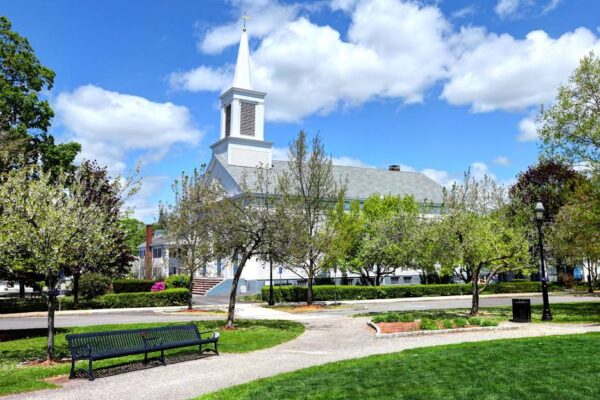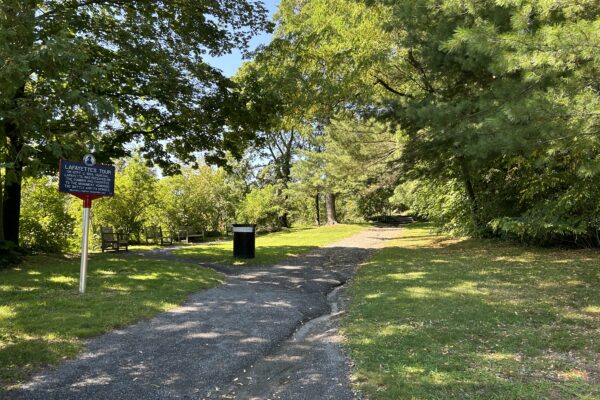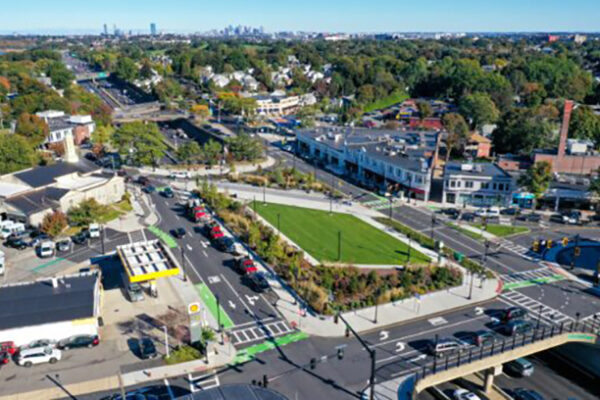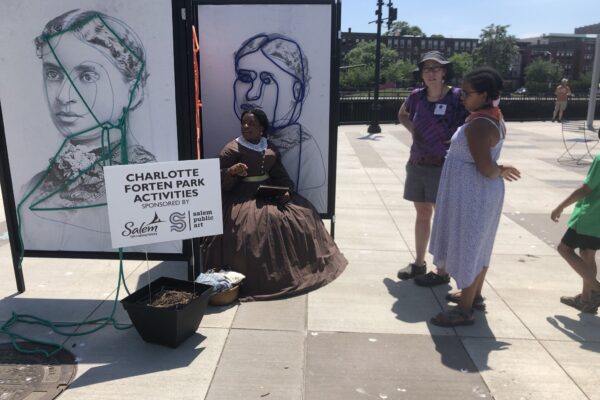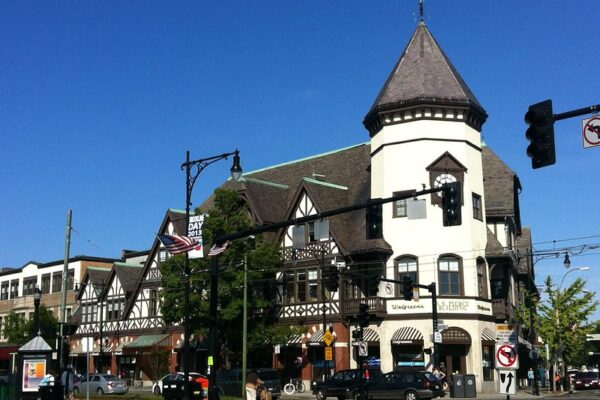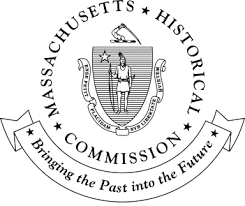
History and Heritage
Overview
Committed to ensuring that Greater Boston is full of unique places and experiences that bring joy and foster diversity and social cohesion, MAPC helps communities across our region uplift their unique histories and heritage through a lens of equity and in alignment with other community priorities. By leveraging the strengths of the Arts & Culture and Land Use Departments, MAPC brings expertise in historic preservation practice and public humanities and offers strategies to advance preservation and heritage planning alongside cultural vitality and inclusion, tourism and small business development, climate resilience, and housing.
By emphasizing diverse voices and experiences, we work hand in hand with local communities to achieve a comprehensive understanding of our shared past that directs us to a future in which everyone can thrive. In addition to our project-based work, MAPC is responsible for overseeing the historic commission appeals for communities in our region and coordinating the Eastern Massachusetts Historical Commission Coalition.
Service Areas
Historic Preservation Planning
Plans and policies offer a framework and a foundation for identifying and achieving preservation goals. The process of developing these documents highlights opportunities for inclusive preservation practices to strengthen local community and economic development.




Economic Opportunity
Understanding our shared histories and heritage not only facilitates community cohesion but also supports local and regional economies. Heritage tourism is an important driver of economic activity in cities and towns across the region, bringing in visitors from around the world to learn about Metro Boston’s role in American and world history. MAPC helps municipalities expand the economic impact of their historic resources by expanding connections to Black history, Indigenous history and the heritages of our region’s diverse immigrant communities, as well as to the businesses, organizations, and artists representing and serving those communities today.
- Heritage Tourism - MAPC supports inclusive, regional tourism that strengthens connections among historic resources, civic organizations, local businesses, and arts and culture activities to expand the economic impact of our history and heritage resources. We prioritize projects that expand the story of our region to represent the diversity of our cultural heritage.
Community and Climate Resilience
Historic and cultural resources are impacted by climate change and serve as an important tool for community resilience. Drawing on our agency’s expertise in clean energy, environmental planning, and hazard mitigation, we develop integrative approaches for managing climate impacts on cultural resources and integrating cultural resources into a community’s overall climate resilience efforts. Contact us to learn more about how MAPC can support your community in this work.
Commemoration
MAPC helps communities across the region to establish inclusive processes to commission commemorative public artworks that resonate with local communities, uphold the values of inclusivity, equity, and representation, and comply with state procurement law.
Recent Projects
How We Can Help
Brainstorm Project Ideas
MAPC staff are available to talk with you to brainstorm project ideas, whether or not you end up working with us on the project. We can help you think about project goals, draft a scope a work, and find ways to incorporate equity into your decision-making.
Find Project Funding
While there are funding sources to do this work, it can be challenging to identify them. MAPC staff can share information about grants and other funding opportunities, including our Technical Assistance Program (TAP).
Work Together
As a regional planning agency, municipalities can choose to contract directly with MAPC without having to issue a request for proposals or an invitation for bids. You can also work with us if you receive TAP funding or if you hire us through a competitive procurement process.
Resources
History and Heritage Team
Staff
Our interdisciplinary team at MAPC comprises individuals with a diverse range of qualifications and expertise. Every staff member listed below meets the Secretary of the Interior's Professional Qualification Standards.

Andrea Harris-Long, AICP
Manager of Housing and Neighborhood Development
[email protected]

Lindsay Randall
Senior Regional Humanities Specialist
[email protected]
617-933-0700 x254

Annis Whitlow Sengupta, PhD
Director of Arts and Culture
[email protected]
617-933-0774

Sarah Scott
Senior Regional Land Use and Historic Preservation Planner
[email protected]

Casey Williams
Regional Housing and Land Use Planner II
[email protected]

Josh Fiala - AICP, AIA, and LEED AP
Manager of the General Land Use Division
[email protected]

Alexis Smith
Principal Regional Housing and Land Use Planner
[email protected]
Historical Commissions Appeals
State law (M.G.L. Chapter 40C Section 12) provides that “[a] city or town may provide in its ordinance or by-law [...] for a review procedure whereby any person aggrieved by a determination of the commission may, within twenty days after the filing of the notice of such determination with the city or town clerk, file a written request with the commission for a review by a person or persons of competence and experience in such matters, designated by the regional planning agency of which the city or town is a member. [... ] The finding of the person or persons making such review shall be filed with the city or town clerk within forty-five days after the request, and shall be binding on the applicant and the commission, unless a further appeal is sought in the superior court [...]”
Download process description (PDF)
Download process description and application (PDF)
Download list of appeals from 1994 to 2024
How the process is initiated:
- Historic District Commission Decision – A historic district commission makes a decision on a matter before it and files the decision as a Record of Action with the city or town clerk. The date of the decision is not the date that the Commission made the decision but the date on which the Commission filed the decision with the city or town clerk.
- Decision to Appeal – If the applicant or an abutter wishes to appeal the decision, they have 20 days after the filing of the official decision in which to file an appeal. The appeal must be filed with the Historic District Commission, not with MAPC.
- Notified MAPC of Appeal – Once an appeal has been filed with the Historic Commission, MAPC will be notified either directly by the Historic District Commission, the party bringing the appeal or the city/town solicitor or historic preservation planner.
- Appellant sends filing form (attached to the left) and fee to MAPC – There is a $1,500 filing fee for bringing an appeal. The fee must be in the form of a certified check or money order. The check must be made payable to Metropolitan Area Planning Council and submitted with the application to the attention of Annis Sengupta. The check must be a cashier’s check or a money order. No hearing will be scheduled until payment has been received.
Questions?
To learn more about MAPC’s history and heritage services, please contact Annis Sengupta, Director of the Arts & Culture Department, at [email protected].


